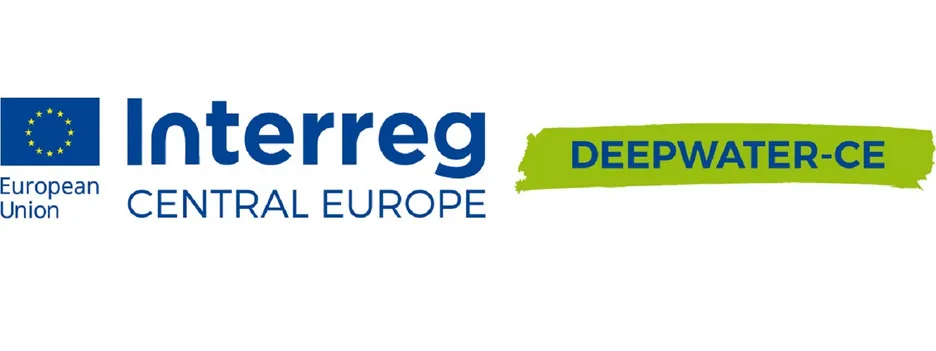DEEPWATER-CE – Developing an integrated implementation framework for Managed Aquifer Recharge solutions to facilitate the protection of Central European water resources endangered by climate change and user conflict

In Central Europe groundwater is the dominant drinking water source. Climate change causes negative effects on availabilities of groundwater resources. Main reasons for these effect in central Europe are alteration in rainfall intensity and frequency leading to an increased variation in the discharge of rivers, extended periods of drought and short intense rainfalls. These effects are expected to substantially intensify within the next decades.
The ERDF Interreg Central Europe project DEEPWATER-CE aims at developing solutions to these challenges by exploring the possibilities of Managed Aquifer Recharge (MAR). MAR is a viable approach of collecting excess surface water and precipitation in periods characterized with water abundance and storing it for dry times in aquifers.
Building on results of relevant previous FP7 and H2020 projects, 8 Partners from 5 CE countries, will work together. In the framework of the project, an integrated environmental management approach for water resources and adoption of MAR is developed. Firstly, a cross-sectoral stakeholder analysis is conducted to involve national relevant parties involved in MAR application, related to the project. Then a collection of good practice and a benchmarking analysis of existing MAR projects is conducted. This provides a baseline of knowledge to develop a transnational assessment methodology for decision making on tailored MAR locations in Central Europe. By using this methodology, four pilot sites in porous aquifers will be selected to investigate different environmental stresses on MAR. In Hungary, porous aquifers in a floodplain alluvial system will be chosen to investigate the utilization of enhanced groundwater resources for irrigation. In Poland, a porous aquifer system close to industrial areas will be chosen to investigate the risk of contamination. In Slovakia, porous aquifers in a region characterized by agricultural land use will be chosen to investigate situations of water scarcity (soil water deficits and low groundwater recharge). In Croatia, aquifers in a semiarid karst area are chosen to determine the risk of low water availability and potential salinization.
The team at the Chair of Hydrogeology is work package leader for the pilot feasibility studies. Research tasks for the Chair of Hydrogeology will focus on characterizing water flow in the unsaturated and saturated zone at the different pilot sites by stable water isotope techniques and modelling. The models will be calibrated and validated with field data from pilot experiments.
We are happy to present you our video tutorial on our transnational decision-support toolbox on designating potential MAR locations in Central Europe under the following link: https://www.youtube.com/watch?v=s5i9jR5EdP4&t=4s&ab_channel=DEEPWATERCE
Project outputs can be found on the project website under the following link https://www.interreg-central.eu/Content.Node/DEEPWATER-CE.html
Project duration
01.05.2019 - 30.04.2022
Contributions to SDG
Responsible:
Prof. Florian Einsiedl; Dr. Arno Rein; Anne Imig
Funded by:
ERDF Interreg Central Europe

Cooperation:
Mining and Geological Survey of Hungary (Lead partner) ; Geogold Kárpátia Ltd., Hungary; University of Silesia, Katowice, Poland; Water Research Institute, Slovakia; Split Water and Sewerage Company Ltd., Split, Croatia ; Croatian Geological Survey, Croatia
Last Update: May 10, 2019


